SeaSoil
Reduction and management of potentially toxic substances in seaweed
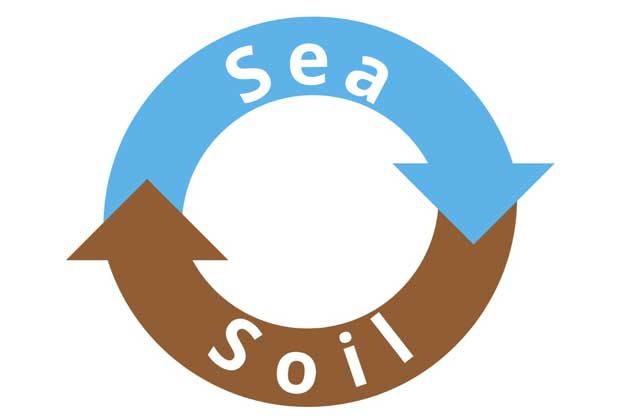
The overall objective of this project is to promote value creation, including ecosystem services, and a further expansion of the seaweed industry in Europe.
Start
01. Oct 2022
End
30. Sep 2025
Funded by
SeaSoil is funded through the European Union’s Horizon 2020 research and innovation program (ERA-NET BlueBio cofund Grant No. 817992) and through the SeaSoil project funded by The Research Council of Norway (Grant No. 339232).
Cooperation
Atlantic Technological University, NORSØK, NMBU, Århus Universitet, Estonian University of life Science, FAZOS (Kroatia), Ocean Forest, Oilean Glas Teoranta, Feamainn and Chosta Thair Teoranta (Donegal Seaweed, Ireland)
Project Manager(s):
Other Participants:
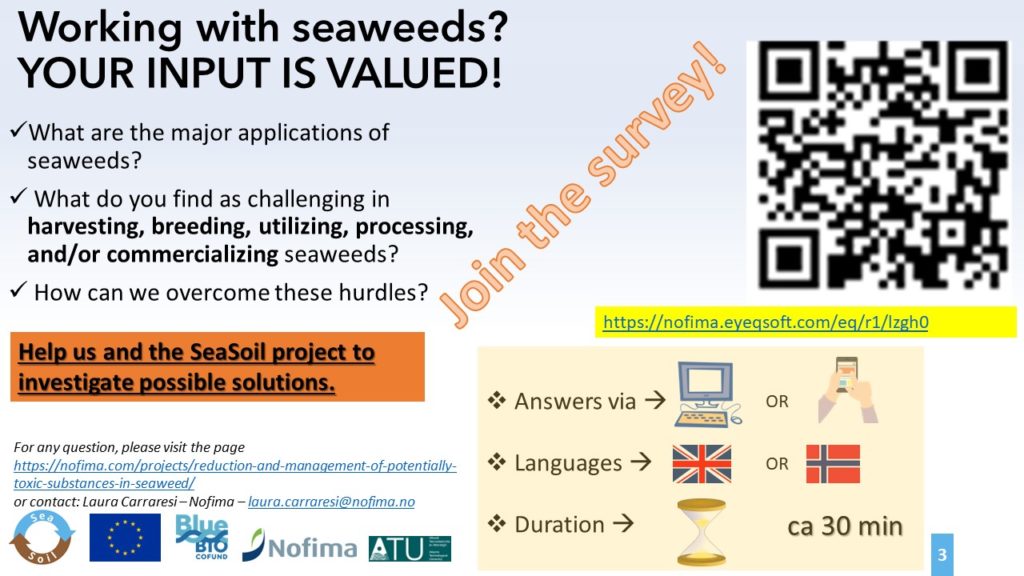
The project aims to expand our knowledge of potentially toxic elements in cultivated sugar kelp as well as wild-harvested kelp and seaweed.
The project will also increase our understanding of how using algae material as a soil enhancer impacts the uptake of potentially toxic substances in cultivated crops, as well as the effect on carbon sequestration and carbon storage in soil.
Background
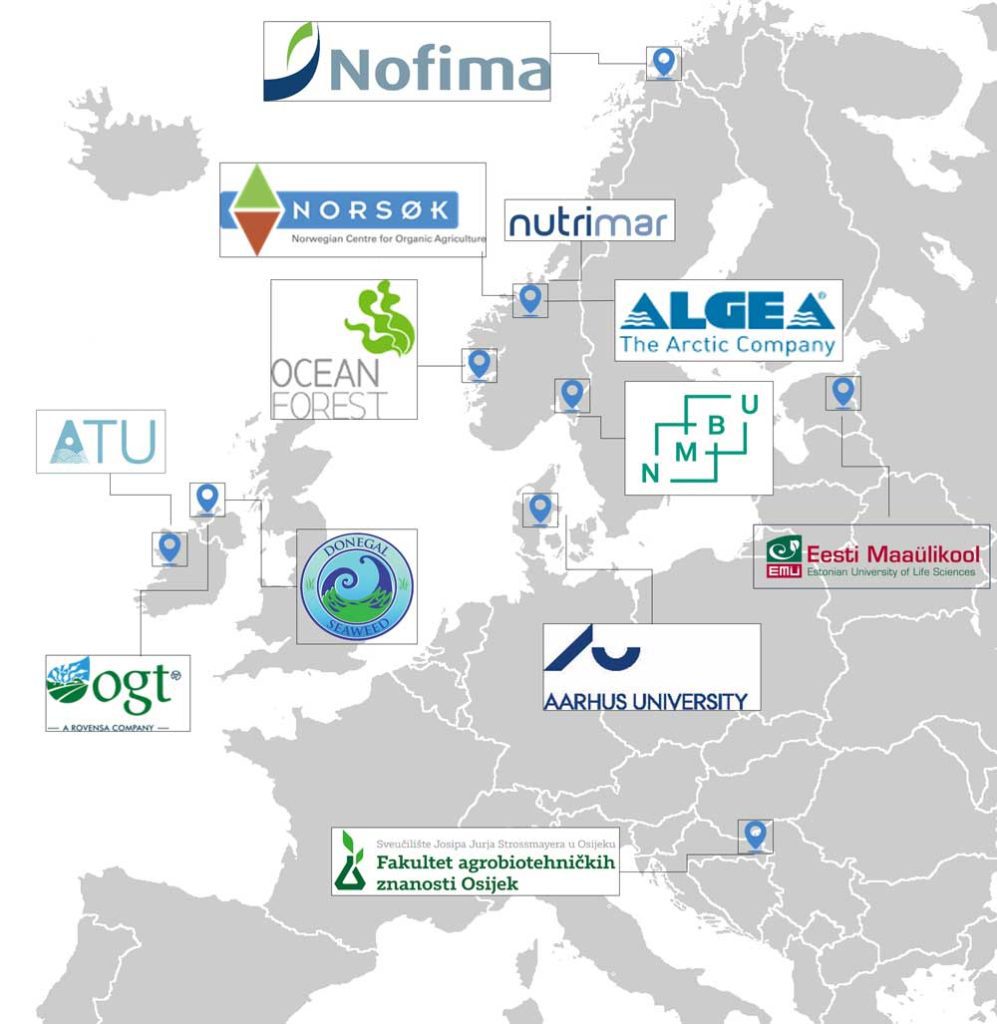
We need to improve our understanding regarding potential toxic elements in seaweed before we can succeed in expanding the seaweed industry in Europe. Kelp cultivation in particular is currently in an early phase of development and implementation.
Kelp farming can ensure “blue vegetation” and “blue forests” that capture and bind carbon, thereby mitigating the climate change, and absorb excess phosphorus (P) and nitrogen (N) from the sea in order to maintain marine biodiversity.
The use of mineral fertilisers in agriculture has a large environmental footprint, increasing the demand for sustainable alternatives.
It has been shown that the use of seaweed material (fresh, dried, extracted or as a residual material from chemical treatment) as a soil enhancer can increase plant growth and improve soil structure. It also has great potential for increased soil carbon storage.
However, increased use of seaweed for food, feed and soil enhancement raises concerns about the high content of potentially toxic elements such as iodine, cadmium and arsenic) in kelp and seaweed.
Goal
The overall goal of SeaSoil is to fill knowledge gaps about PTE in cultivated sugar kelp and arsenic in seaweed used in agriculture for fertilization, soil improvement and carbon storage (CSS).
Sub goals
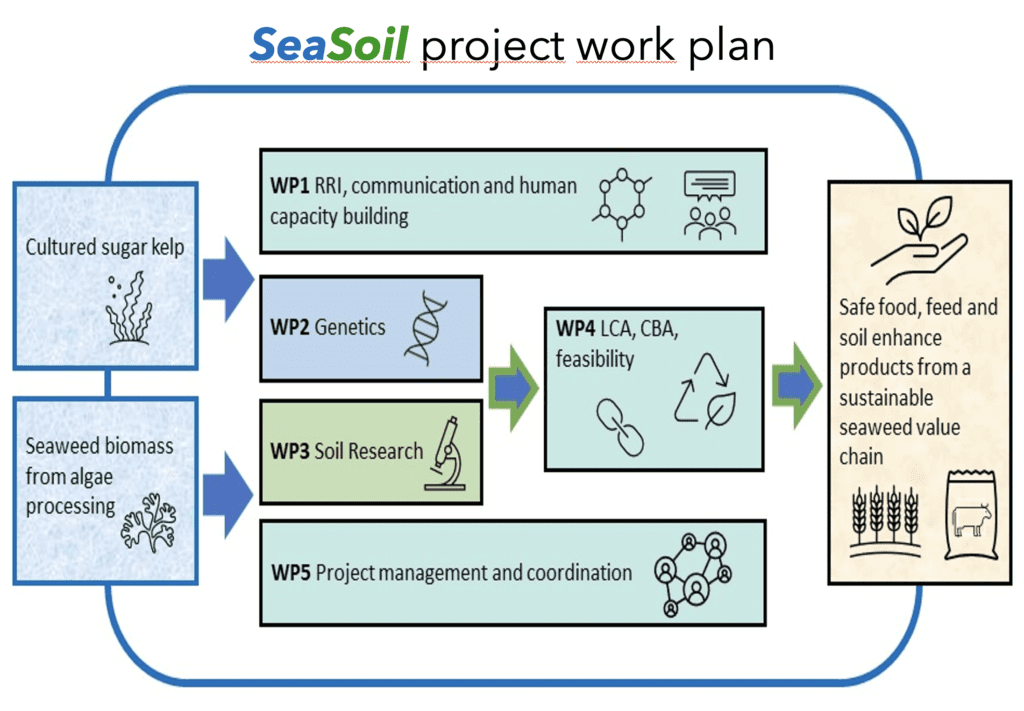
- Estimate the heritability and genetic covariance in the content of cadmium, arsenic (As) and iodine in sugar kelp from two different regions in Norway, and assess the potential selection response to reduce the content of these substances.
- Study the effect of seaweed application rate and water saturation on the dynamics of arsenic in soil to determine chemical reactivity and potential bioavailability of labile arsenic in an outdoor container experiment with different soil types and two crops.
- Estimate the potential for using seaweed-based material amendments to increase carbon capture and storage in agricultural soils.
- Study the effects of seaweed production on the environment (primarily climate change-focused impact) using life cycle analyses, and analyse the benefits in relation to the cost of the kelp industry, including ecosystem services.
- Study economic feasibility and regulatory incentives for the production and use of (residual) biomass from cultivated kelp.
- Ensure engaging and inclusive collaboration, open and impactful knowledge dissemination and training in accordance with responsible research and innovation.
What we are doing
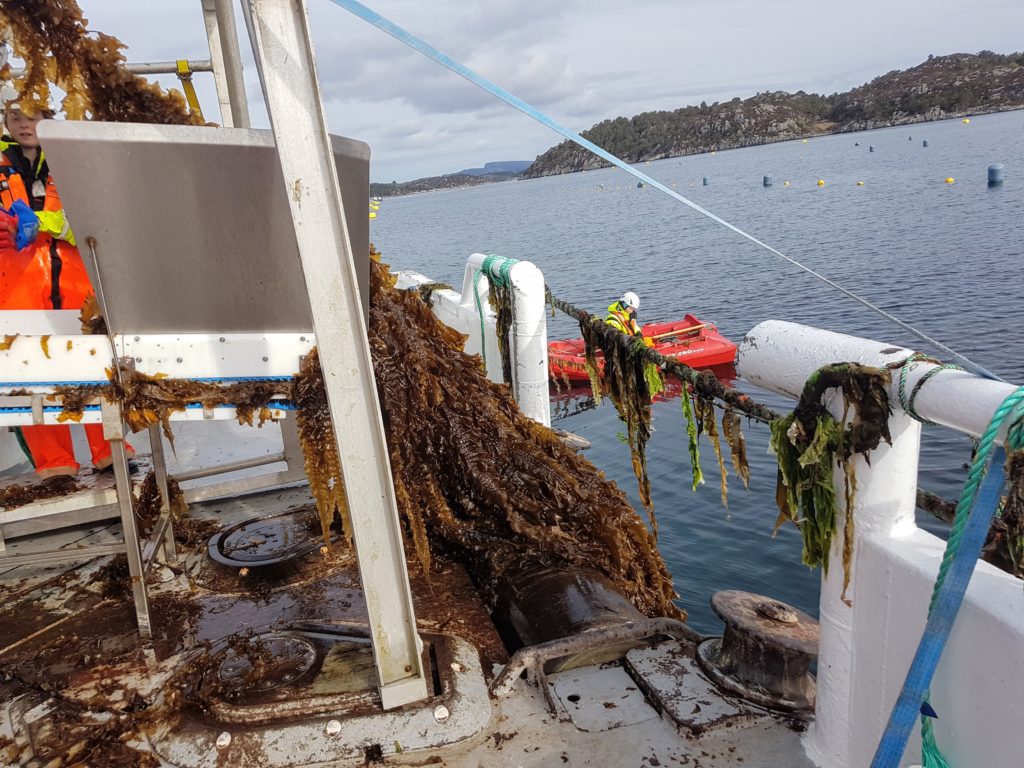
Nofima is coordinating the project and leading the work on genetic analyses of cadmium, arsenic (As) and iodine in sugar kelp from two regions in Norway (Ocean Forest in Austevoll and Tromsø).
This will provide a basis for assessing a potential selection response to reduce the content of these substances in cultivated sugar kelp.
Samples from a cultivation experiment at the Aquaculture Research Station in Tromsø will be analysed at NMBU for chemical content, in addition to genomic analyses.
Nofima scientists will also be contributing to the work of ensuring responsible research and innovation (RRI), engaging decision-makers, disseminating knowledge and studying profitability and regulatory incentives for the production and use of (residual) biomass from cultivated kelp.
Publications
Research areas
Food from new sources
Breeding and genetics
Feed development and nutrition
Economy and profitability
Resource management
Research facilities